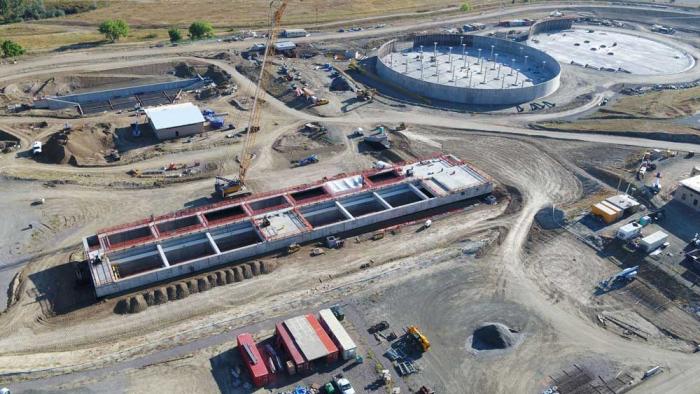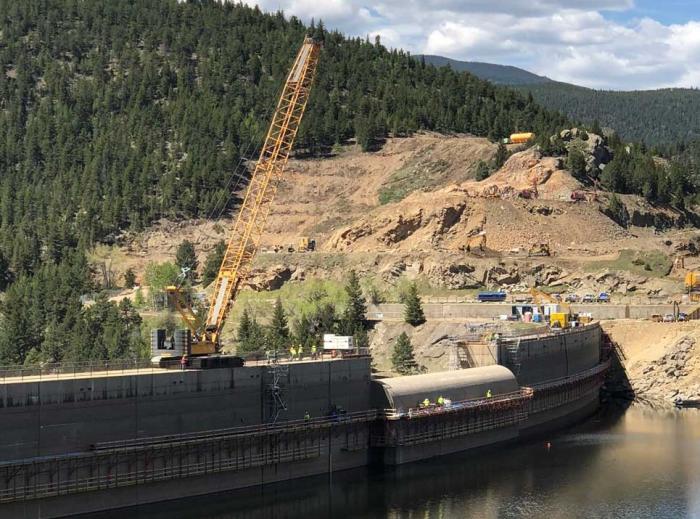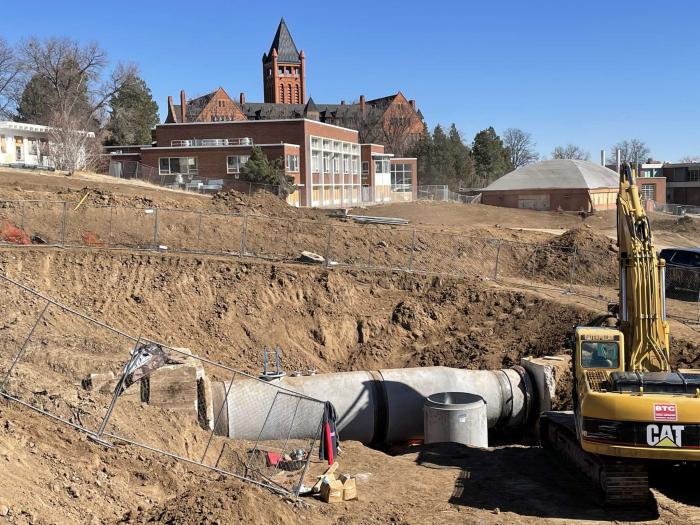Water rates to rise slightly in 2023
Over its first 100 years of operation, Denver Water assembled a large, complex system that collects, cleans and delivers water to 1.5 million people, 25% of the state’s population.
Now, Colorado’s largest water provider is in the midst of its most capital intensive period in its history, as it readies that complex system to meet future challenges, ranging from a warming climate to the potential for new regulations.
“There’s a saying, ‘We stand on the shoulders of giants’,” said Jim Lochhead, the CEO/Manager of Denver Water.
“Today, 1.5 million people across the Denver metro area benefit from those who built Denver Water’s system we know today. Now, it’s our responsibility to not only care for the system they built, but to prepare it to meet the challenges that lie across the next 100 years — all while keeping rates as low as good service will allow.”
To ensure that the system continues to reliably deliver safe, clean and affordable water to its customers, Denver Water expects to invest $2.3 billion over the next 10 years in projects that will maintain, repair, protect and upgrade the system and make it more resilient and flexible in the future. At the same time, the utility also has been subject to the same economic tides, such as inflation and supply chain issues, that have affected its costs.
Ensuring the system continues to reliably deliver a safe water supply, along with the desire to keep rates as low as possible for customers, were factored into the Oct. 12 decision by Denver’s Board of Water Commissioners to approve new rates for 2023.
Learn about the major projects Denver Water has underway.
How the new rates for 2023 will affect individual customer bills will vary depending on where the customer lives in Denver Water’s service area and how much water they use.
For typical single-family residential customers who receive a bill from Denver Water, if they use 104,000 gallons of water in 2023 as they did in 2022, the new rates will increase their monthly bill by an average of $1 to $4 over the course of the year, depending on where they live and the services they receive from Denver Water.
A customer’s monthly bill is comprised of a fixed charge, which helps ensure Denver Water has a more stable revenue stream to continue the necessary water system upgrades to ensure reliable water service, and a volume rate for the amount of water used.
The fixed monthly charge — which is tied to the size of the meter — is increasing by 70 cents in 2023, to $17.90 per month, for most single-family residential customers to ensure Denver Water is recovering 20% of its needed revenue from fixed charges.
After the fixed monthly charge, Denver Water’s rate structure has three tiers based on the amount of water used.
To keep water affordable, the first tier, which covers essential indoor water use for bathing, cooking and flushing toilets, is charged at the lowest rate.
The amount of water in this first tier is determined for each customer by averaging their monthly water use as listed on bills dated January through March each year. This is called their average winter consumption.
Water use above the average winter consumption — typically used for outdoor watering — is charged at a higher price. Efficient outdoor water use is charged in the second tier (middle rate), followed by additional outdoor water use in the third tier (highest rate).
The difference in volume rates for customers who live inside Denver compared to those who live in the suburbs is due to the Denver City Charter (see Operating Rules), which was changed in 1959 to allow permanent leases of water to suburban water districts based on two conditions: 1) there always would be an adequate supply for the citizens of Denver, and 2) suburban customers pay the full cost of service, plus an additional amount.
Denver Water also encourages customers to be efficient with their water use indoors and out. Finding and plugging leaks inside the home and creating water-wise landscapes that benefit our communities recognizes water is a precious resource in our semi-arid climate.
Learn more about water efficiency inside and out at denverwater.org/BestPractices.
And using less water means more water can be kept in the mountain reservoirs, rivers and streams that fish live in, and Coloradans enjoy. It also can lower monthly water bills, saving money.
“We are continuing our work upgrading our infrastructure, building a new, award-winning state-of-the-art water treatment plant, a new water quality laboratory, expanding Gross Reservoir and replacing old, customer-owned lead service lines to protect our customers from the risk of lead in drinking water,” Lochhead said.
“At the same time, we work to keep our rates as low as possible for our customers.”
In addition to rates paid by customers, Denver Water relies on bond sales, cash reserves, hydropower sales, grants and the fees paid when new homes and buildings are connected to the system.
Major rating agencies recently continued Denver Water’s triple-A credit rating, the highest possible, citing the utility’s strong financial management. These ratings were a key factor in the utility’s recent bond sale, which will bring in about $200 million to help pay for investments into the system.
Denver Water also is working through final approvals to accept federal funding that will support the Lead Reduction Program, allowing the utility to replace an additional number of lead service lines (at no direct cost to the customer) above the 4,500 currently slated for replacement in 2023.
This additional funding will help speed up the replacement program while keeping rates as low as possible for customers.
The utility does not make a profit or receive tax dollars. It reinvests money from customer water bills and fees to maintain and upgrade the water system.






